Gaza Death Toll Mounts As Israel Resumes Bombardment

Israel resumed its deadly bombardment of Gaza on Friday, vowing to destroy suspected Hamas positions in the densely-inhabited Palestinian territory after a week-long truce expired despite global calls for its extension.
Israel accused militants of firing a rocket shortly before the pause was due to come to an end, but the UN expressed dismay at the resumption of hostilities.
The Hamas-run health ministry in the Gaza Strip said more than 60 people had been killed in the morning after the truce ended at 0500 GMT.
Under the truce, Hamas militants released hostages in exchange for Palestinian prisoners held in Israeli jails, and greater aid flows into war-devastated Gaza.
With explosions audible and a dark column of smoke rising over northern Gaza. Israel's army said its warplanes were striking Hamas targets in the Palestinian territory.
AFP journalists saw, and visited the aftermath, of bombings in Gaza's north and south.
Outgoing missiles fired by Palestinian groups towards Israel were also seen.
"Unfortunately, Hamas decided to terminate the pause by failing to release all the kidnapped women," Israeli government spokesman Eylon Levy told reporters. "Having chosen to hold onto our women, Hamas will now take the mother of all thumpings."
In a social media post, United Nations Secretary-General Antonio Guterres said: "I deeply regret that military operations have started again in Gaza. I still hope that it will be possible to renew the pause that was established."
France also called for a return to the truce, and the UN human rights chief, Volker Turk, described the resumption of hostilities as "catastrophic".
Combat resumed shortly after Israel's army said it had intercepted a rocket fired from Gaza, the first from the territory since a missile launched minutes into the truce on November 24.
A source close to Hamas told AFP the group's armed wing had received "the order to resume combat" and to "defend the Gaza Strip".
In the rubble of a house destroyed by bombs in the southern Gaza city of Rafah, a man screamed: "Where are my children?"
In Khan Yunis, a group of men chanted "God is greatest" as they rushed through the streets carrying a body wrapped in a white shroud. The "war has returned, even more fierce", Anas Abu Dagga, 22, told AFP at a hospital in the southern Gaza city.
On a bed at Khan Yunis's Nasser hospital, a member of the same family, Amal Abu Dagga wept, her beige veil covered in blood.
"I don't even know what happened to my children," she said. Another relative, Jamil Abu Dagga, told AFP the family had been at home when the bombs started falling.
In Israel, sirens warning of potential missiles sounded in several communities near Gaza, and authorities said they were restarting security measures in the area including closing schools.
A rocket strike destroyed a van in one Israeli community near Gaza.
The office of Israeli Prime Minister Benjamin Netanyahu said fighting had restarted after Hamas violated the truce.
"The Government of Israel is committed to achieving the goals of the war: Releasing the hostages, eliminating Hamas and ensuring that Gaza never again constitutes a threat to the residents of Israel," it said.
Despite the resumption of fighting, talks between Qatari and Egyptian mediators were "ongoing", said a source briefed on the talks.
During the seven-day truce, Hamas freed 80 Israeli hostages in exchange for 240 Palestinian prisoners, and more aid entered Gaza, where about 80 percent of the population is displaced and short of food, water and other essentials.
More than 20 other hostages, mostly Thais, were also freed but outside the scope of the truce agreement.
On Thursday, Washington's top diplomat Antony Blinken, meeting Israeli and Palestinian officials, called for the truce to be extended, and warned any resumption of combat must protect Palestinian civilians.
Other world leaders, and aid groups, had also sought an extended pause in the fighting that began on October 7 when Hamas militants broke through Gaza's militarised border into Israel.
During the unprecedented attack, Hamas killed about 1,200 people, mostly civilians, and kidnapped around 240, according to Israeli authorities.
In response, Israel vowed to eliminate Hamas and unleashed an air and ground military campaign in Gaza that the Hamas authorities who run Gaza say has killed almost 15,000 people, also mostly civilians.
On Thursday eight more Israeli hostages, some holding dual nationality, were released.
"Mia is coming back," she cried out.
Not long after the hostages arrived in Israel, the country's prison service said another 30 Palestinian prisoners -- 23 minors and seven women -- had been freed.
Israel had made clear it viewed the truce as a temporary pause to secure the release of hostages.
Netanyahu's government has come under increasing pressure to account for how it will protect civilians in the territory, which is under blockade, with virtually no way for people to escape.
Before leaving Israel, Blinken had warned that any resumed military operation by Israel must "clearly and precisely" designate areas "in southern and central Gaza, where they can be safe and out of the line of fire", he said.
On Friday the Israeli military published a map of "evacuation zones" in the Gaza Strip. The military said it would enable residents to "evacuate from specific places for their safety if required".
Residents in multiple numbered areas were sent SMS warnings on Friday.
Israeli forces "will begin a crushing military attack on your area of residence with the aim of eliminating the terrorist organisation Hamas," the warnings said.
"Stay away from all military activity of every kind."
International bodies have called for more time to get medical supplies, food and fuel into Gaza, where an estimated 1.7 million people -- around 80 percent of the population -- have been forced from their homes.
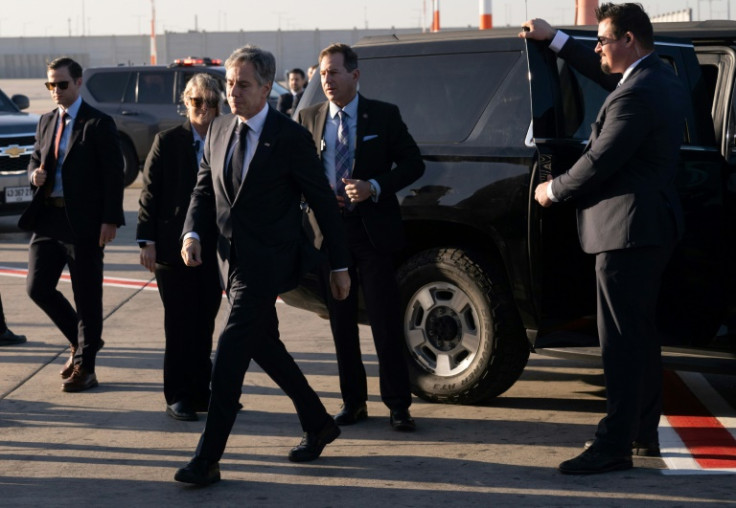
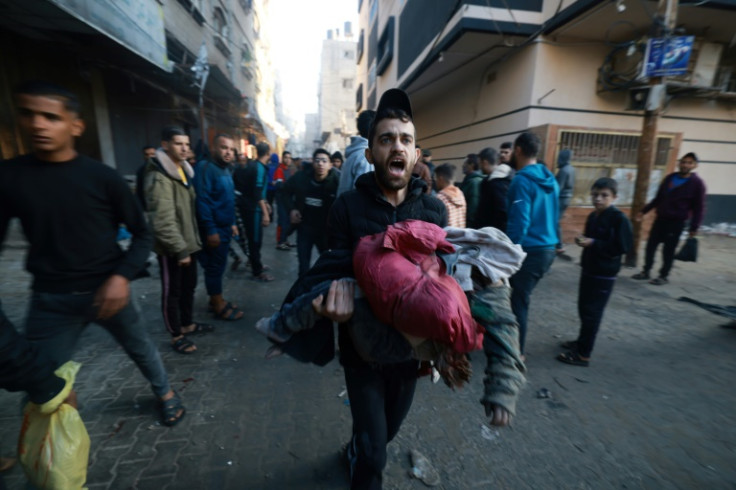
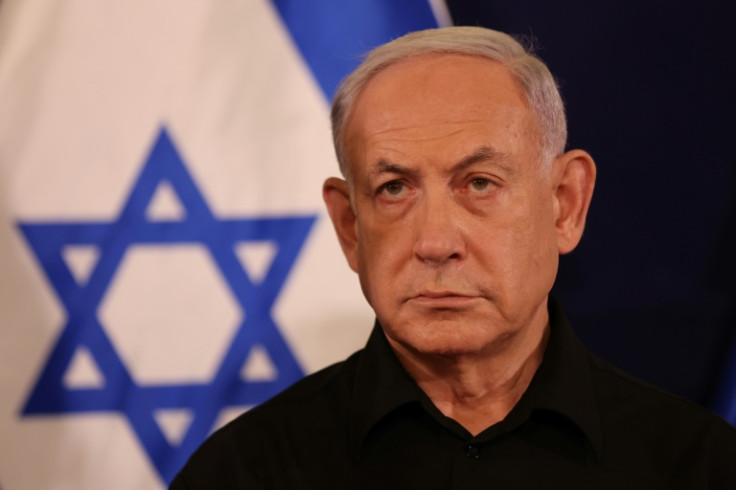
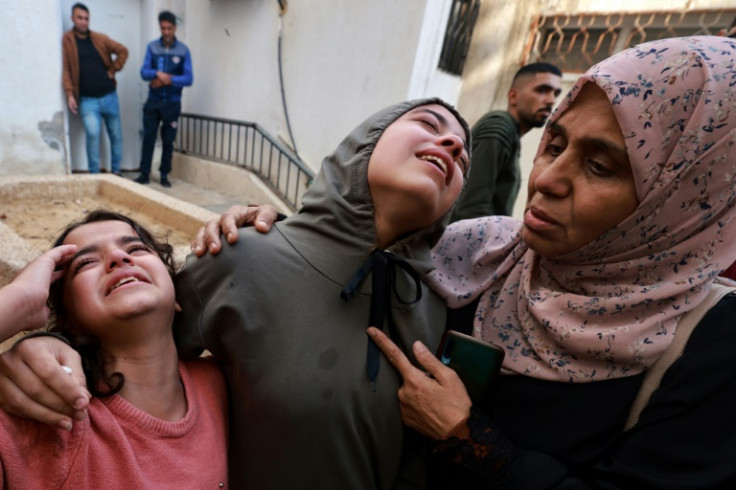
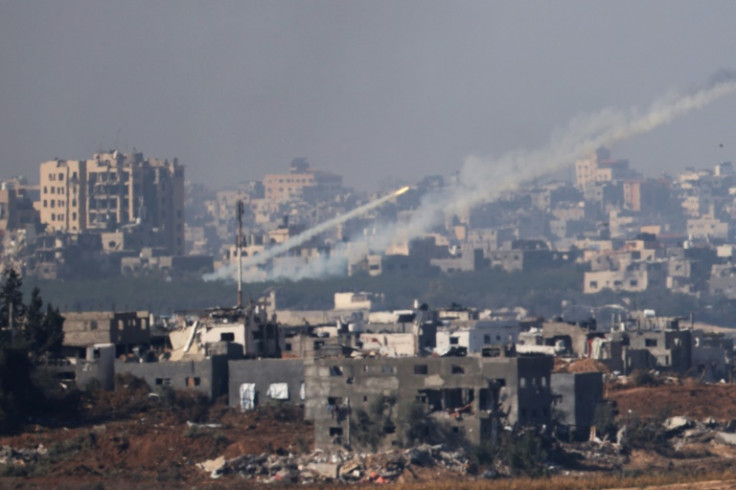
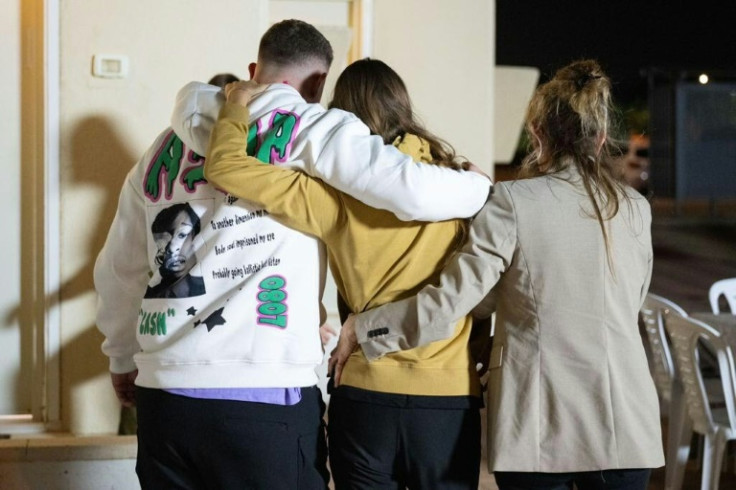
© Copyright AFP 2025. All rights reserved.





















